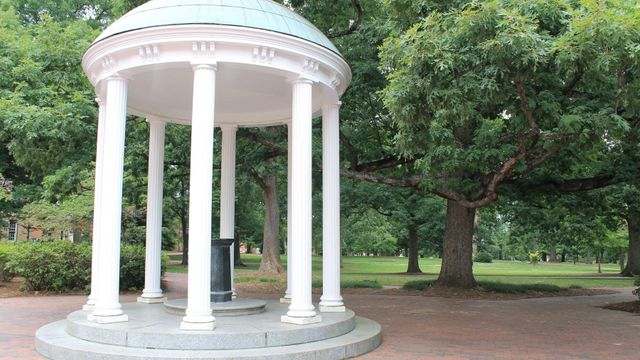Survey: 1 in 3 female undergrads at UNC-Chapel Hill has been sexually assaulted
As part of a national survey released Tuesday, more than one in three undergraduate female students at the University of North Carolina at Chapel Hill reported having been sexually assaulted.
UNC-Chapel Hill was one of 33 schools to participate in the Association of American Universities Campus Climate Survey on Sexual Assault and Misconduct. More than 180,000 undergraduate and graduate students were surveyed across those public and private universities to gauge the prevalence nationwide of sexual assault, stalking and harassment on campus.
Overall, more than 20 percent of survey respondents at UNC-Chapel Hill reported being raped or unwanted touching, and another student was the perpetrator in nearly three-quarters of the incidents. About 85 percent of the assaults occurred during the school year, and about two in five were in a campus residence hall or fraternity house.
About two-thirds of those reporting some form of assault said they had been drinking before the incident, and a majority said the assailant had been drinking. Nine percent of respondents said they were given a spiked drink or drugs without their knowledge before the assault.
"You just hear about it from various people. It's not hard to believe." junior Jacquelyn Boyd said of sex assaults on campus.
The prevalence of sexual assault at UNC-Chapel Hill was higher than the national average, according to the AAU survey. Nationwide, only 13 percent of respondents reported being raped or unwanted touching.
"The data are very concerning and reinforce what we know to be true both on our campus and across the country: sexual assault and sexual harassment are serious problems that deeply affect our community," UNC-Chapel Hill Interim Chancellor Kevin Guskiewicz said in a statement. "These behaviors have profound physical and emotional effects on the people who experience them and also have lasting impacts on other members of the campus community. And while many of you have been very active in raising awareness and staying engaged in the issue, we need the help of every person – now more than ever – to change our culture."
Federal investigators determined last year that the university violated Title IX regulations in its handling of sexual assault cases on campus.
The findings by the U.S. Department of Education's Office for Civil Rights came after a five-year investigation prompted by complaints from several women who said UNC-Chapel Hill underreported sex assaults in an annual report on campus crime and created a hostile environment for students trying to report an assault.
UNC-Chapel Hill has made changes as a result of the complaint and the OCR's findings:
- The school adopted a policy in 2014 that details prohibited conduct, including stalking and gender-based harassment, and provides resources for victims.
- Students have been removed from the grievance panels that hear sex assault cases – only trained personnel handle the cases now – and students are required to take an online sexual violence and harassment training course.
- Last year, the school agreed to review and revise Title IX policies and grievance procedures, the data collection process in sex assault cases and the training for staff members who handle these cases.
Students said they feel some of those measures have failed.
"I think a lot of kids come to school not understanding what those rules really mean, and I don't think the university does a good job educating new incoming freshman," sophomore Grace Stroup said.
"It seems like a lot of things they say are hollow. They say they are making changes, but they don't go into specifics about it. They say they will follow up, and they don't," Boyd said.
The AAU survey shows that only 17.5 percent of respondents sought help from a UNC-Chapel Hill resource, such as campus police, health services or the Gender Violence Services Coordinator. The majority of those who didn't seek help said they didn't think the incident was serious enough to report, because they either weren't hurt, felt like the situation was common on campus or because they had been drinking.
"In the coming weeks and months, we will direct our attention to strengthening our prevention efforts," Guskiewicz said, noting that the campus will put together a group of students, faculty and staff to help develop a comprehensive strategy for prevention and awareness that will resonate with students. "We need collective action to bring about change."
But the survey also noted that most UNC-Chapel Hill students who witnessed sexual harassment or an abusive situation that could have resulted in an assault said they took some action to intervene and help the person in trouble.
"I've been asked by a lot of my female friends to walk home with them at night, from the library to walk to their dorm with them. I'm always up for that," sophomore Danny Bastawros said.
Women on campus said students need to stick together.
"I think the attitude is go in with someone else and go out with someone else," Stroup said. "Never go anywhere by yourself, especially in light of all the events that have happened this year already. I think the people on this campus are more heightened of the danger of something happening."
In September, a woman was sexually assaulted and robbed at knifepoint in a parking garage of an off-campus apartment complex, and several students said they were harassed by a man outside Davis Library.











